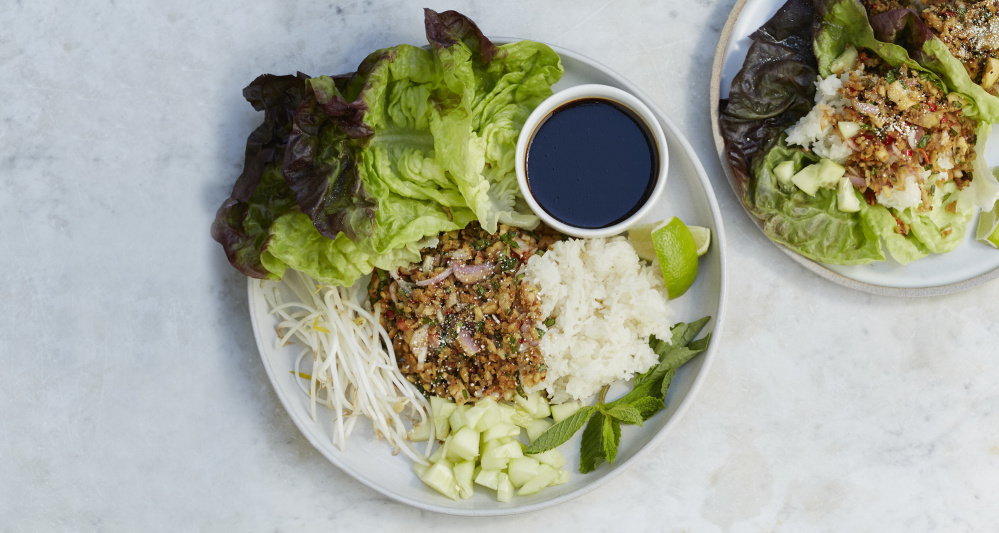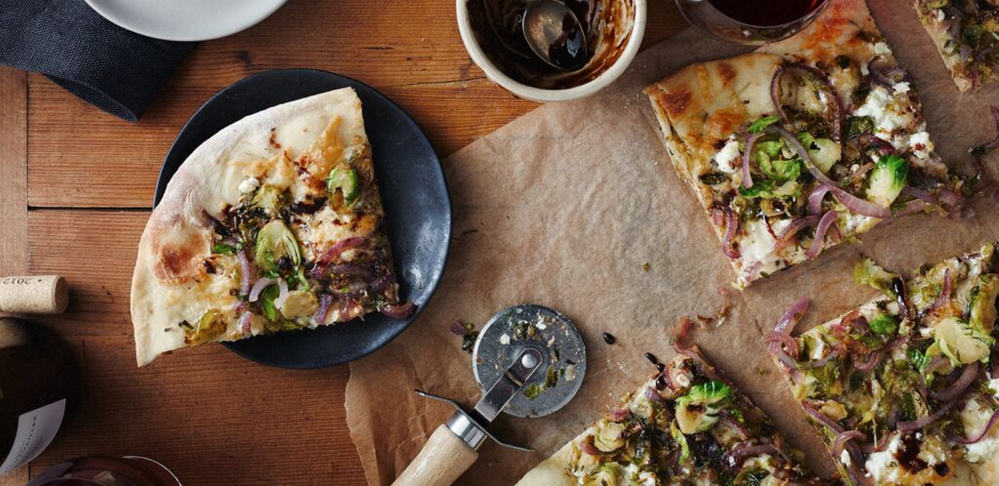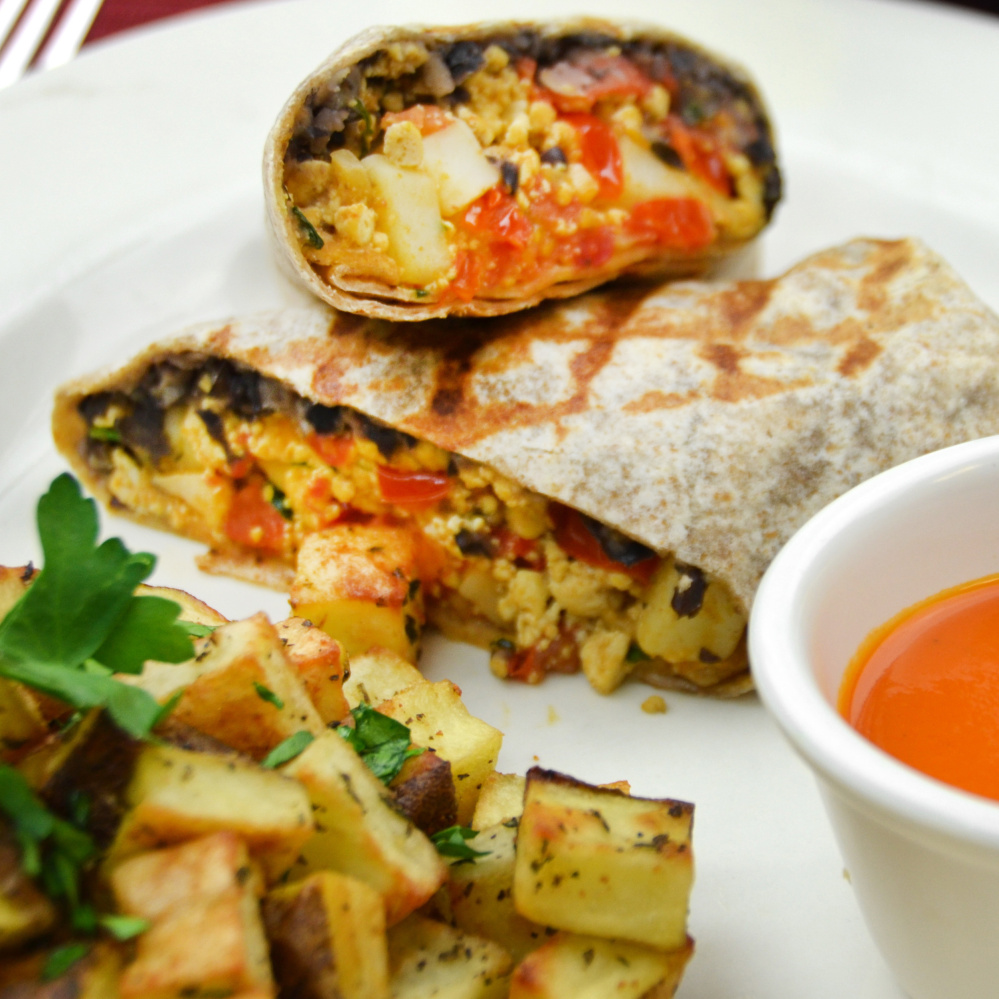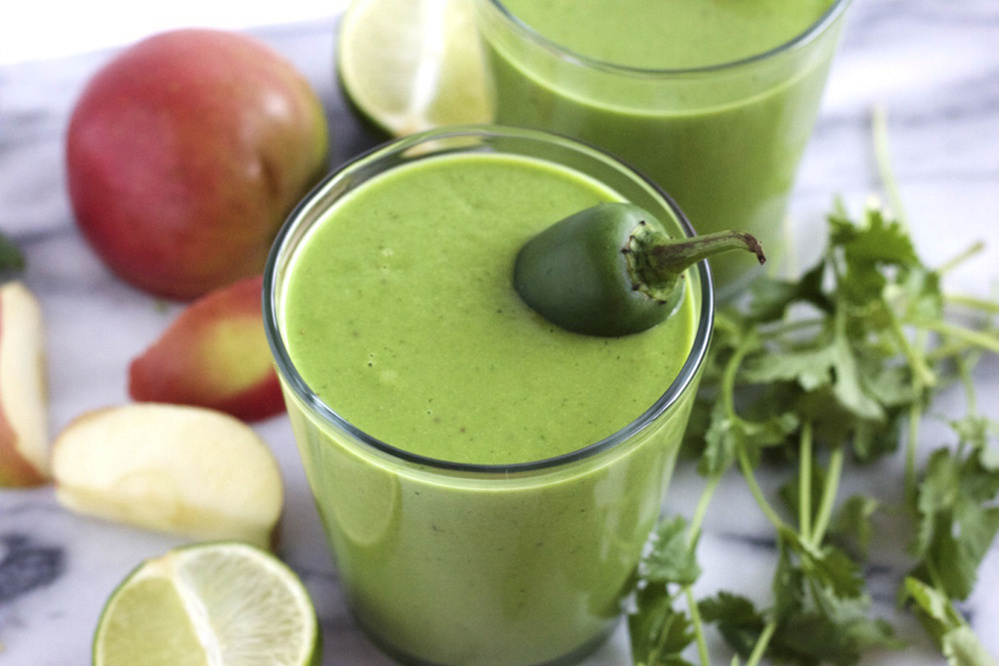After Thanksgiving festivities are done, even those of us who love to cook could use a break.
One novel – and increasingly common – way to lighten the cooking load is to order a meal kit, which allows you to cook without having to either plan a menu or go shopping. Many national companies offer vegetarian kits and deliver to Maine.
The concept is straightforward: A company boxes up a step-by-step recipe card and all the pre-measured, fresh ingredients needed to make the meal and overnights it (or delivers it by courier in larger cities) to your doorstep.
Meal kits tend to appeal to families in which both parents work outside the home or households with gourmet appetites but limited cooking skills. They also are popular in large cities such as New York, where buying groceries often means lugging them on the subway and then up multiple flights of stairs.
Meal kits, unsurprisingly, come at a price: Earlier this year Marketwatch.com calculated that a ready-to-cook meal from one of the leading companies was 35 percent more expensive than shopping at Whole Foods and preparing one’s own meal.
An all-vegan meal kit company called Green Blender, which began shipping to Maine in October, offered to send me a sample box. Since I work from home, where most days I cook three meals, I doubt I’m the target demographic, but I do love smoothies.
The kit arrived at my door from FedEx just before lunch on a Wednesday. Inside, where two ice packs kept the insulated box cool, I found all the ingredients for five smoothies individually bagged and labeled. My 2-year-old quickly snagged the five oversized and brightly colored straws resting on top of the bags.
With nothing to do but pour the pre-measured ingredients into my blender (although I confess to further chopping the carrot pieces), it took me less than five minutes (and that was with a 2-year-old “helping”) to whip up a Protein Carrot Cake smoothie from ingredients that included pea protein powder, walnuts and vanilla almond milk.
Granted, making a smoothie is not difficult even when you have to purchase and chop the ingredients yourself. However, on the day this box arrived I was busy from before dawn until well after dusk and didn’t have a moment to run to a grocery store or do much chopping. Without Green Blender, I wouldn’t have been drinking a smoothie that day.
The story was similar on the following days, when I made the Concord Grape Gulp, the Jicama Pear green smoothie (which contained kale and powdered reishi mushroom), the Pina Colada with Amla, and the Honeycrisp Spiced Orange (with lettuce and yacon root). Most of the ingredients are organic, with the exceptions noted on the recipe card. And because the box comes with premeasured amounts, you don’t end up with leftover yacon root or amla berry powder.
Since I know my way around a blender, I admit that after forcing my recipes-are-suggestions self to make the first two recipes exactly as instructed, I did tweak the others – adding unsweetened soy milk in place of water here and swapping out a conventional Honeycrisp apple for an organic Maine-grown Cortland there.
Even with such off-recipe swaps, the service proved to be a time-saver and it also got me and my family to add ingredients and try smoothie flavors we wouldn’t have if left to ourselves. The kit was convenient; beyond that, our culinary horizons broadened.
Investors understand the appeal, too. This new but rapidly expanding segment of the food service industry is attracting ample funds from venture capitalists, with market research firm Technomic predicting the sector could be worth up to $5 billion in the next 10 years. According to the Wall Street Journal, U.S. market leader Blue Apron is valued at $2 billion and gained $135 million in new investment in June.
The business model emerged in 2007 when Middagsfrid launched in Sweden. Blue Apron and Plated got their starts in 2012, and now many companies sell in specific U.S. cities or regions and others ship across the country.
I found five services that deliver to Maine and sell vegetarian food: Green Blender, Blue Apron, Plated, HelloFresh and Purple Carrot. All offer creative recipes that go beyond run-of-the-mill vegetarian chili and stir-fries.
The all-vegan service Purple Carrot recently snagged author Mark Bittman from his editorial job at The New York Times to be the meal kit company’s chief innovation officer. The author of many wildly successful cookbooks, including “How to Cook Everything Vegetarian” and “VB6: Eat Vegan Before 6,” Bittman will oversee recipe development for the company.
According to Purple Carrot spokesperson Kori Crosson, because Bittman isn’t a full-time vegan and instead eats a primarily plant-based diet, he is an ideal match for the company.
“We offer vegan recipes because we know that eating less meat and more plants is a healthy choice for people, and a sustainable one for the environment,” Crosson said. “The founders are not vegan, nor are the majority of our customers. Our mission is to make healthy, sustainable cooking a simple, fun and delicious experience for everyone.”
Recent Purple Carrot dishes include Saag Paneer with poached tofu, black bean burgers with spiced sweet potato fries and penne with cauliflower, crisp Brussels sprouts and toasted bread crumbs.
When customers order from companies offering both vegetarian and non-veg options, the sign-up process allows them to note their dietary preferences. Some simply ask what you eat (beef, chicken, vegetarian) while others ask about specific foods (dairy, soy, gluten).
The pricing is fairly similar among the meal kit companies and depends on the number of meals ordered and the number of people to feed. Purple Carrot charges $68 a week for three meals for two people. Green Blender, whose boxes contain the ingredients to make five, 24-ounce smoothies (two servings), costs $49 per box for a week-to-week subscription; the price drops with longer subscriptions.
The chefs at Blue Apron create 10 new recipes each week, four of which are usually vegetarian, such as gnocchi and maitake mushrooms with sweet corn; spicy fregola sarda with soft-boiled eggs; and mixed mushroom tacos with avocado. The company offers plans for two people that deliver three recipes a week for $59.94, while a family of four can opt for two recipes a week for $69.92.
Each of the Plated kits serves two, with two recipes for $48 per week (plus $6 for shipping). Recent vegetarian recipes from Plated include white pizza with crispy Brussels sprouts; mushroom paella with peas and crispy kale; and roasted cauliflower, fig and almond salad.
Caramelized shallot risotto, southwestern black bean chili and roasted veggie tostadas are recent vegetarian options on the HelloFresh menu that public relations manager Shara Seigel described as “extremely popular with subscribers.” One of the company’s vegetarian boxes containing three recipes for two people costs $59 and a box of the same three recipes for four people costs $109.
When customers go on vacation or otherwise need to skip a delivery, they go online to pause the service.
Most of the vegetarian options from the national meal kit companies include dairy and eggs. Lexy Quadracci, a spokesperson for Blue Apron, said the company hears that customers “make substitutions if they are vegan.”
Avery Yale Kamila is a freelance food writer who lives in Portland. She can be reached at:
avery.kamila@gmail.com
Twitter: AveryYaleKamila
Send questions/comments to the editors.






Success. Please wait for the page to reload. If the page does not reload within 5 seconds, please refresh the page.
Enter your email and password to access comments.
Hi, to comment on stories you must . This profile is in addition to your subscription and website login.
Already have a commenting profile? .
Invalid username/password.
Please check your email to confirm and complete your registration.
Only subscribers are eligible to post comments. Please subscribe or login first for digital access. Here’s why.
Use the form below to reset your password. When you've submitted your account email, we will send an email with a reset code.